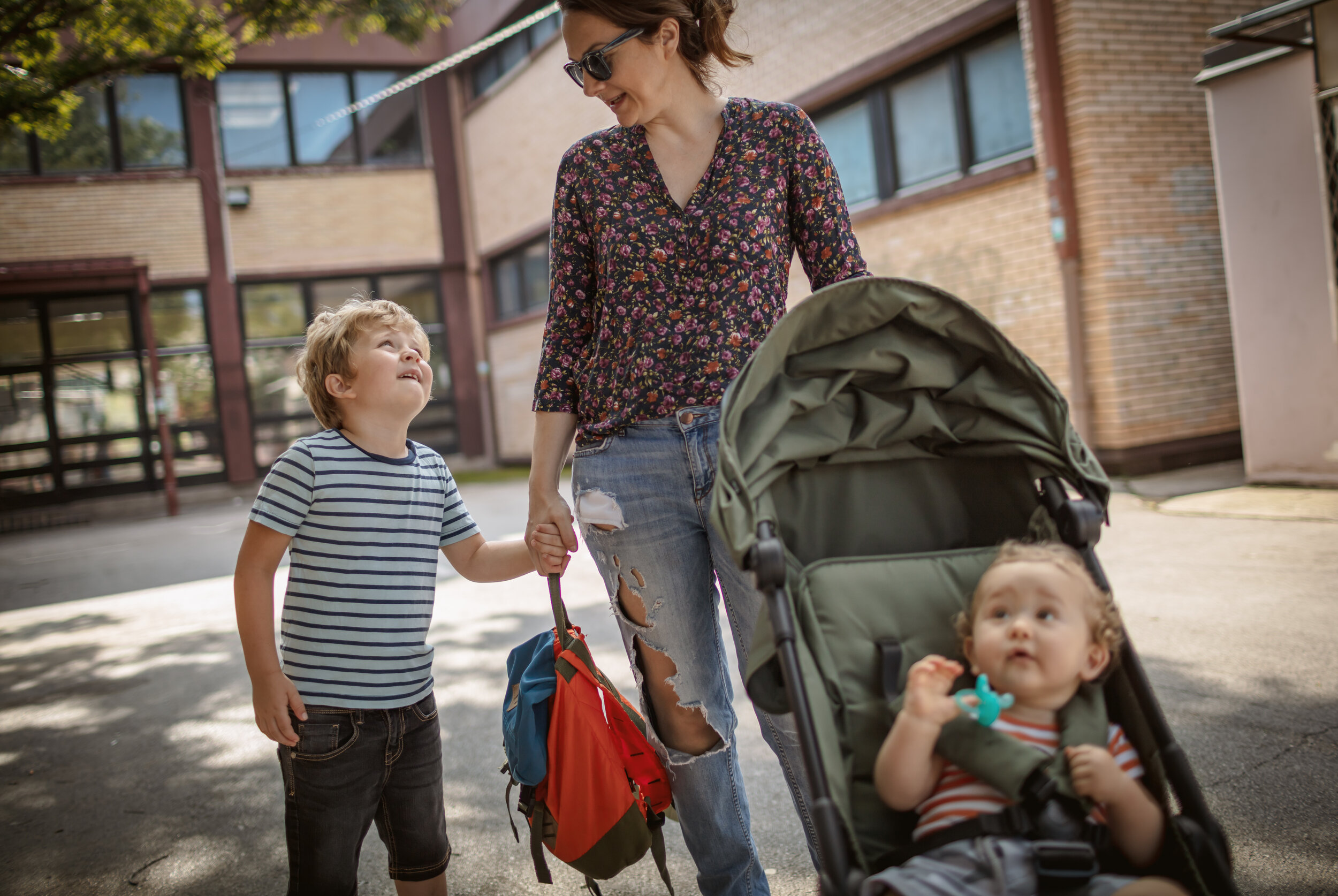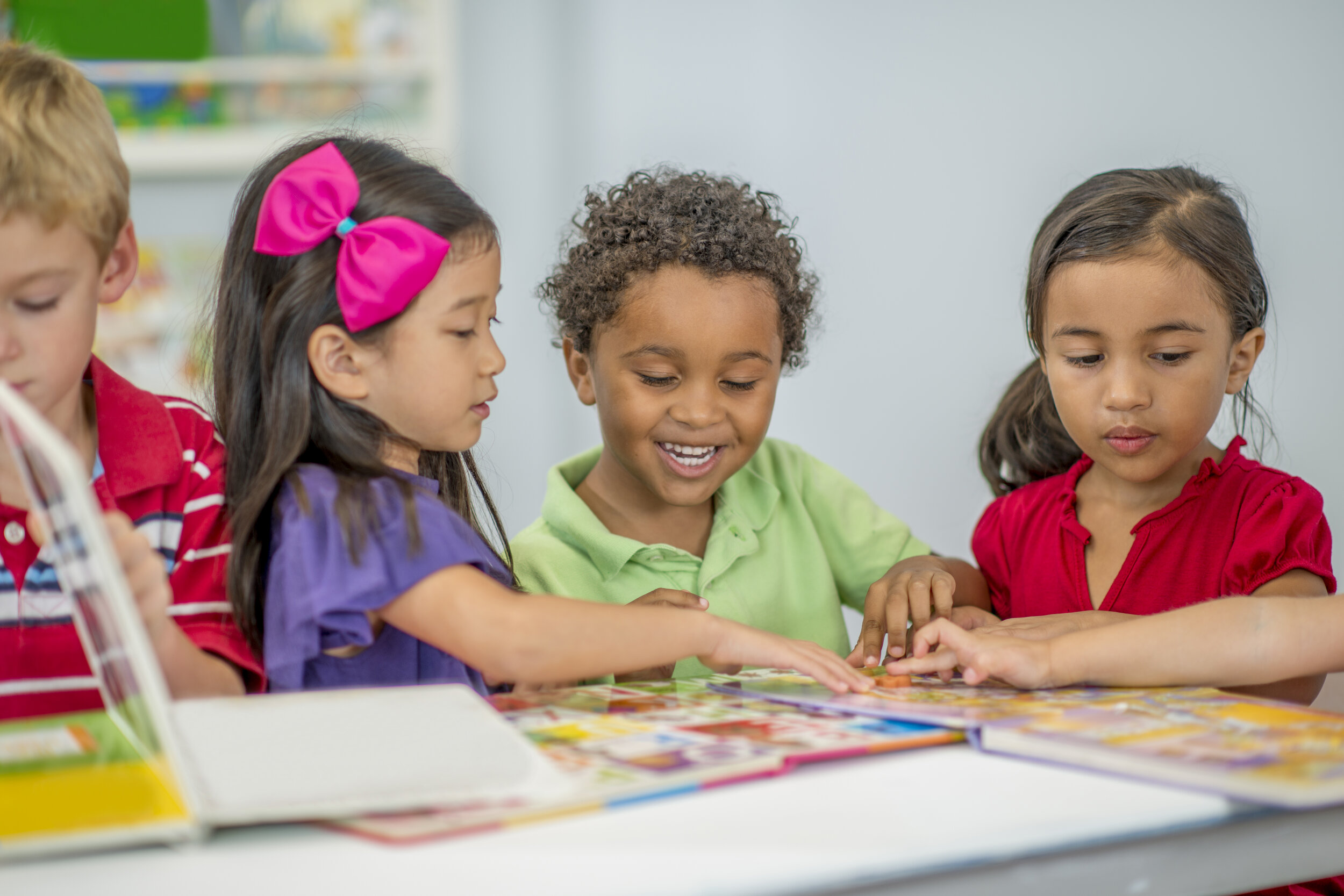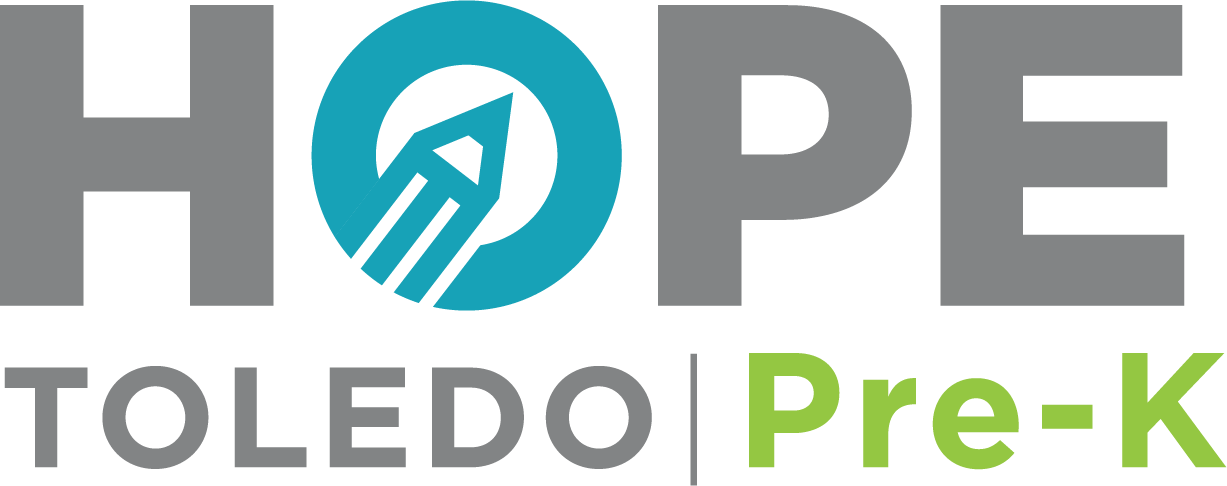“90% of a child’s brain is fully developed by age five. When we don’t provide those experiences, prior to age five, we have lost a great window of opportunity.”
A Strong Start for Our Children Means a Strong Future for Toledo
Toledo’s future depends on a well-educated workforce, yet four out of five children here – 80% of our kids – start school not ready to learn. Too many stay behind – in reading, math, high school graduation, college enrollment, job skills and family income. Our 4,000 4-year-olds need a strong start so Toledo can have a stronger economy and future.
With no time to waste, HOPE Toledo Pre-K is working for sustainable public preschool funding to:
Get all 4-year-olds access to high-quality preschool through public schools and community providers.
Provide families with tuition assistance on a sliding scale based on income.
Require high standards, sound curricula, small classes, and family engagement.
Attract and retain excellent teachers with competitive compensation.
Provide professional development to improve teacher and student performance.
Partner with local agencies for the health, social, and behavioral services children need.
Guarantee accountability with program evaluations and financial audits.
Governance is shared by participating school districts and a HOPE Toledo Pre-K Services Board including the districts, city, educators, parents, agency partners, funders, and local citizens – and implemented by a small pre-K leadership team.










We must invest in high-quality preschool as part of a broader strategy to improve our community's workforce, reduce poverty, and increase opportunity for all.
Research proves that birth to age 5 is the most important and significant period for a child's emotional, cognitive, behavioral, and social development.
Toledo is home to 4,000 4‑year‑olds. To compete in this world, where more education than ever is required for success, Toledo must give its children a strong start.
About 40% of Toledo’s young children live below the poverty line ($25,700 for a family of 4). Generational poverty has impacted Toledo for decades, and it’s only going to get worse as a result of the pandemic – without community commitment to change.
There is a significant gap in school readiness between poor children and those from moderate or higher income families. Nearly 90% of Toledo Public School students and more than half of those from Washington Local Schools qualify for free or reduced-price lunch.
More than 80% of Toledo’s children enter kindergarten without the skills, behaviors or knowledge necessary for success. (based on 2019 KRA scores).
“90% of a child’s brain is fully developed by age five. When we don’t provide those experiences, prior to age five, we have lost a great window of opportunity.”
—Dr. Amy Allen, Toledo Public Schools.
“Preschool programs are among the most effective public investments. For every $1 invested in early childhood education, there is up to $8.90 returned to the community.” (Source: Washington Center for Economic Growth).
Expanding affordable access to high-quality preschool will:
Level the playing field, giving all of Toledo's children a chance to succeed.
Help local parents return to work and restart our economy.
Improve access to needed health, nutrition, and mental health services.
Position Toledo to compete with other major Ohio cities.
From the Community
Here’s what other community members are saying about preschool and how vital it is to the growth of our children and our community.
“Providing a high-quality early childhood education for our youngest citizens is essential for their educational success. Research has consistently shown that these early years hold the greatest potential for optimal cognitive and social development, resulting in long-term positive outcomes. When we invest in our community’s children through their education, we are investing in a strong future for our next generation.”
— Elisa A. Huss-Hage, Retired Professor, Teacher Education and Human Services, Owens Community College and current Director of Early Childhood Education at HOPE Toledo
“No matter a person’s age, relationships matter. A high-quality preschool experience is important for children so they experience life with others. Skills such as communicating, problem solving, listening, disagreeing, persevering, valuing self and others, thinking, deciding and caring will be capabilities that will be with them forever.”
— Karen L. McCoy, PhD.
“Investing in the education and success of young children is critical to the well-being of every community. Well educated children become well educated adults. Simply put, education leads to a higher quality of life. A life that generates social and economic prosperity...not only for the individual, but for the community as a whole.”
— Dr. Raymond Witte, Dean, Judith Herb College of Education,
University of Toledo
“Most of us as parents remember our children began asking question after question around age 3-4. They talked and wanted to know about everything. Imagine a setting for all 4-year-olds in our community learning and developing with high educational standards that will prepare them for life- that’s universal preschool!”
— Lisa McDuffie, President/CEO, YWCA Northwest Ohio









